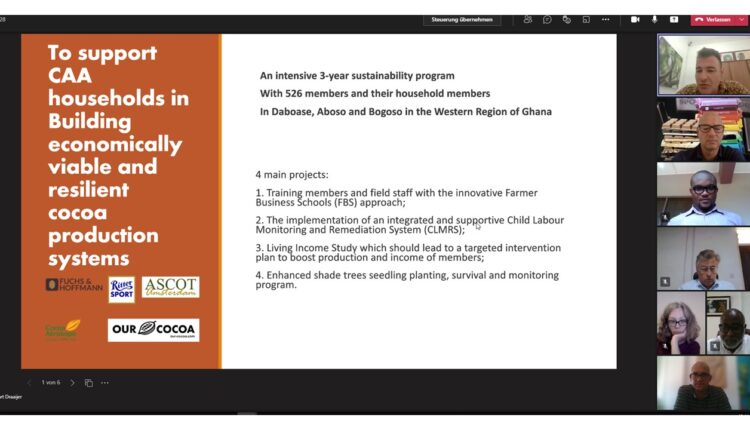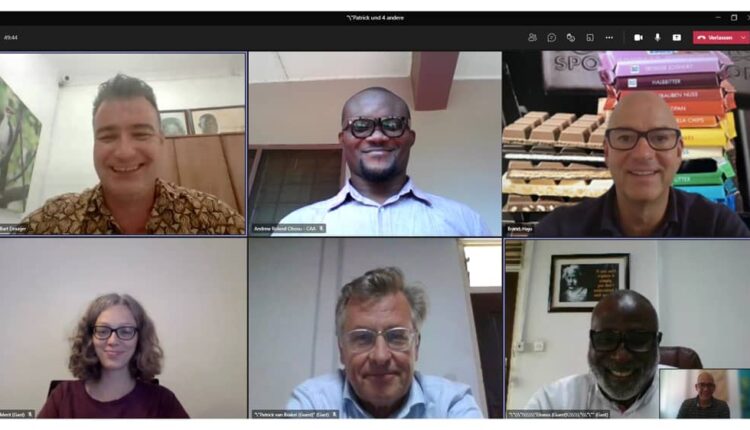Cocoa Abrabopa Association (CAA), Alfred Ritter GmbH & Co KG, Fuchs & Hoffmann and Ascot Amsterdam are collaborating on setting up an economically viable and resilient cocoa production system that will improve the lives of cocoa farmers and their households.
The 3-year sustainability project, dubbed OUR COCOA, seeks to target about 526 members of the Ghanaian cocoa farmer association and their households and will be implemented in communities of Daboase, Aboso and Bogoso in the Western Region of Ghana.
The program was kicked off during an online meeting where representatives of each of the organizations participated.
According to the partners, the main components of the joint program include training members and field staff with the innovative Farmer Business Schools (FBS) approach; the implementation of an integrated and supportive Child Labour Monitoring and Remediation System (CLMRS); boosting the household income from cocoa and other agricultural products and enhanced shade trees seedling planting and monitoring program.
They explained that the FBS training will build the capacity of members and their spouses in order for them to take advantage of the skills and knowledge learned to sustainably improve their incomes and food supplies.

Also under the OUR COCOA project, the staff of CAA will be trained by external resource persons to strengthen the service delivery of the CAA field team with new and refreshed knowledge and skills which goes beyond the technical content.
With regards to the CLMRS component, existing child labour cases and families at risk of child labour and school attendance will be identified, child labour risk assessment which consists of household surveys, community profiling and awareness-raising will be done at the start of the program.
Data gathered in the first year will be used to develop the model further for subsequent years with a remediation plan and members categorised into ‘low’ and ‘high risk’ to child labour.
This should lead to an increase in the percentage of children of CAA members and their sharecroppers attending school over a period of 3 years, they said.
They also explained that the Living Income component is split into two elements where a study will be carried out to identify the status quo, develop targeted activities and measures the progress towards a living income.
It will establish a household income baseline for the targeted member households and provide suggestions for cost-effective monitoring of the household income in the following years.
The study will also provide recommendations on improving the household income which includes ‘from cocoa farming’ and ‘from other agriculture-based livelihoods’ particularly for women.
- Cocoa Civil Society Urges EU to Invest in Deforestation Regulation - June 12, 2024
- West African Leaders Must Strengthen Trade and Price Mechanism - April 29, 2024
- Cote d’Ivoire-Ghana Cocoa Initiative Opens Permanent Office - April 20, 2024
